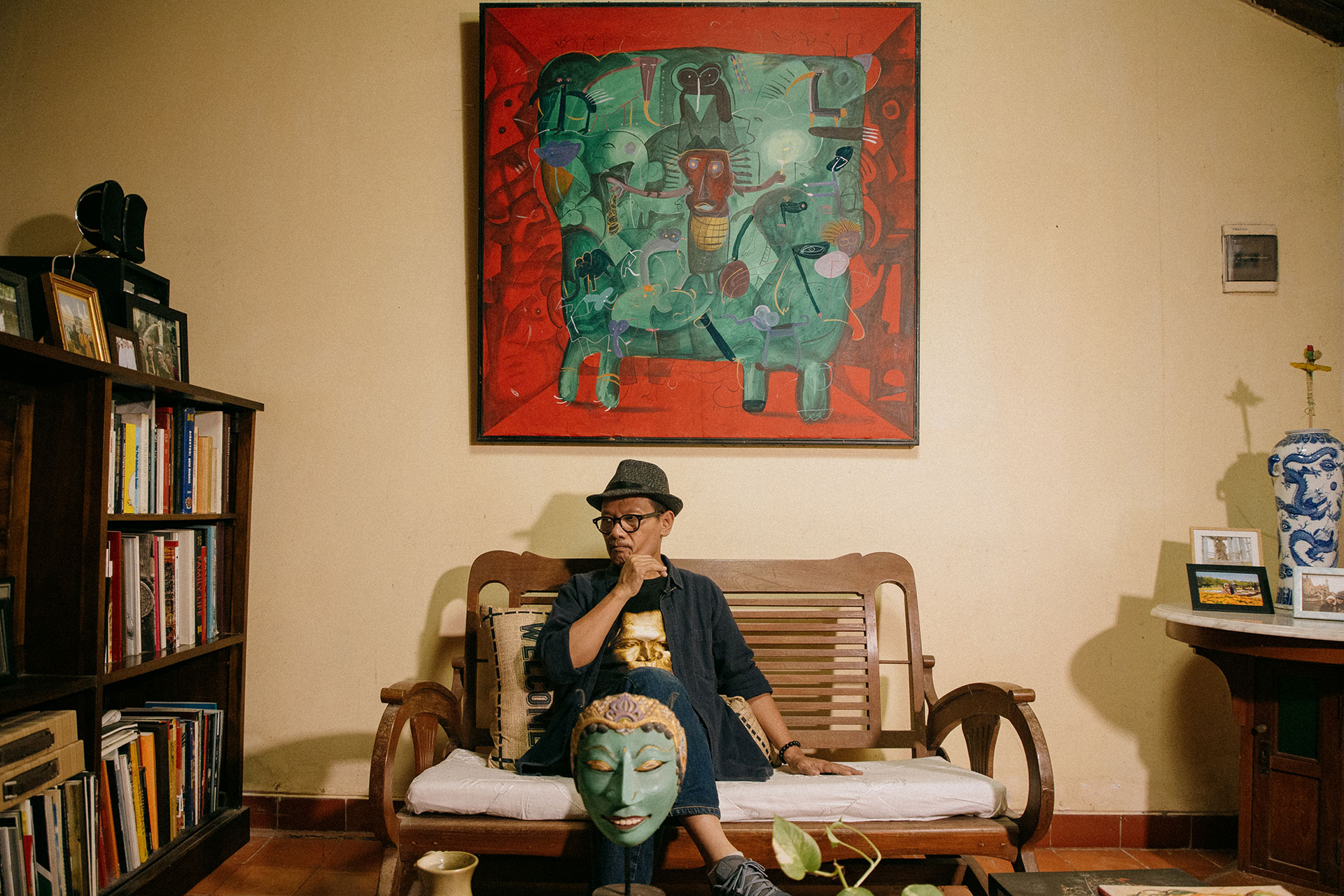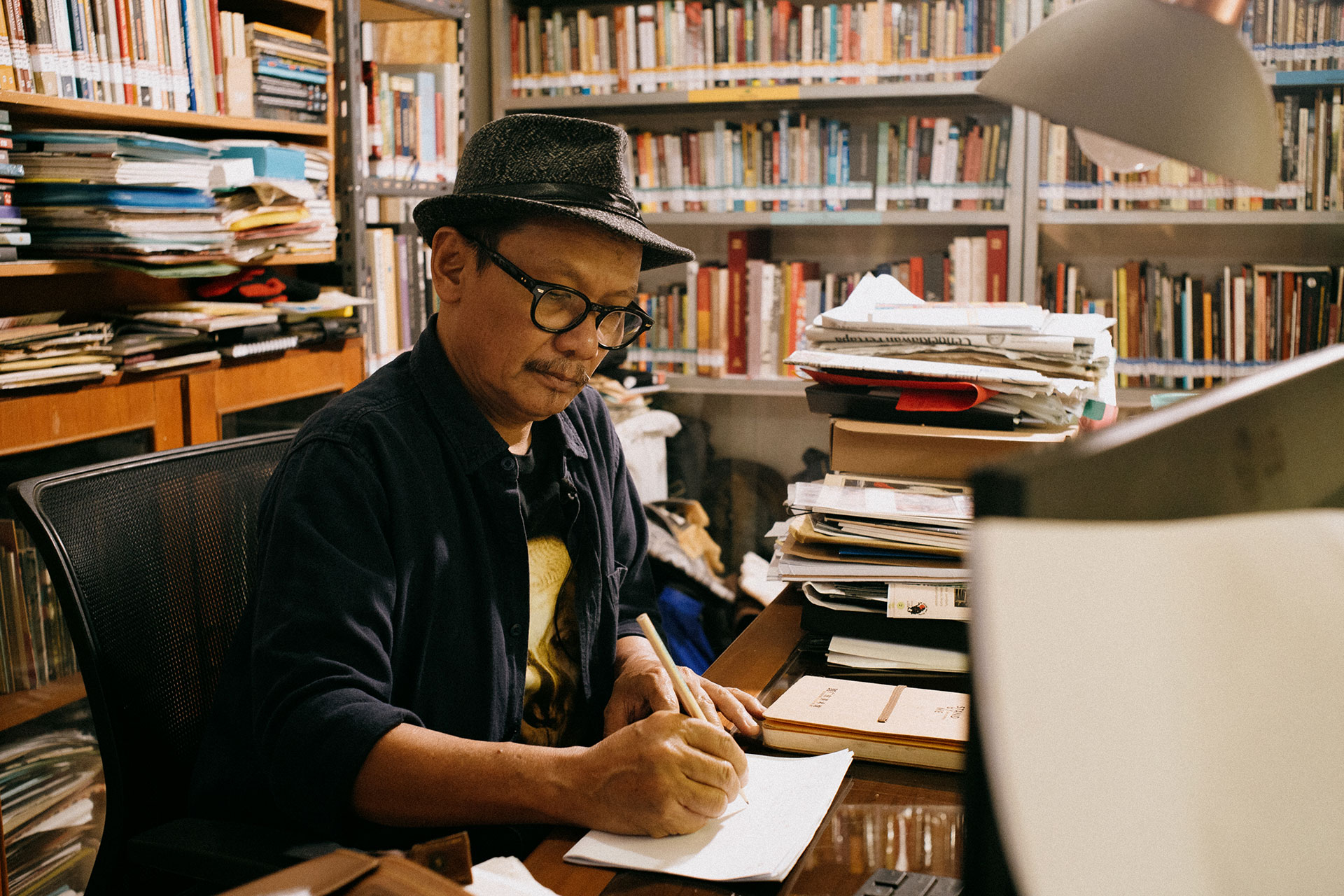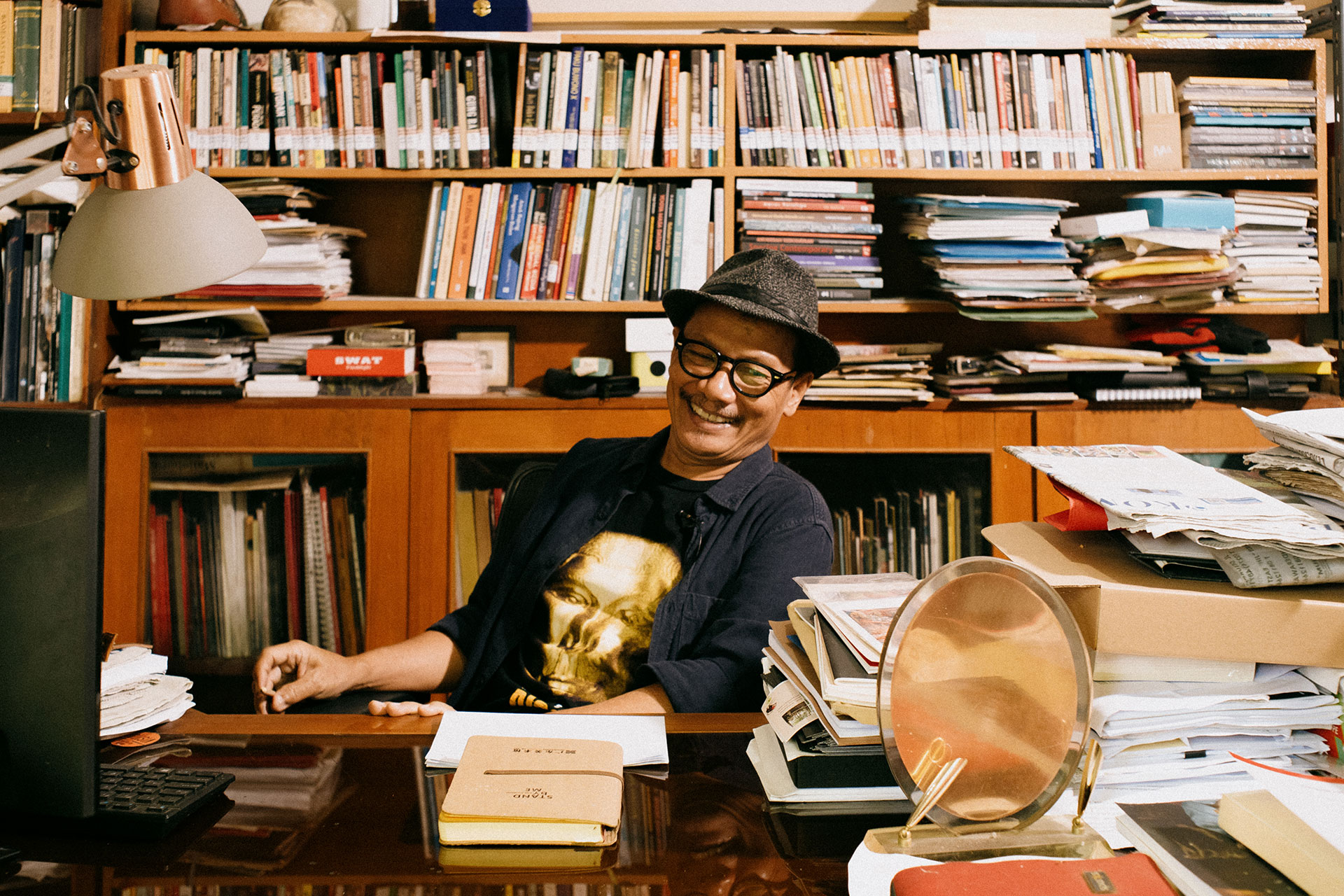Free Shiping All Around Indonesia
Free Shiping All Around Indonesia

So, the desire to write is also cultivated through a healthy sense of competition.
SUWARNO: Yes, and why is it that I became more and more hungry for books? It’s because I believe that writing has to go hand-in-hand with reading. Keeping up with art, we always have to stay updated with new information. Reading is one of the ways, so I had to find ways to get my hands on books. But don’t get me wrong, buying books is a luxury for me, it has always been. Especially in my high school and college days, I had to mull it over for a week whenever I wanted to make book purchases. Buying books means a dent in my wallet, so it was a hard decision to make. Sometimes I had to sacrifice my meals, that’s why it still feels like a luxury to be able to buy books. The difference is that now I can actually afford them (laughs). But still, whenever I come out of a bookstore with a stack of books, I feel super-rich. The feelings remain the same. Nobody can stop me from buying books. It’s where my money goes, most of the time.

Do you still actively make art now that you have become a researcher and curator?
SUWARNO: My aspiration to follow Sudjojono’s steps persisted during my college years until I graduated college and became a lecturer. Around the year 1990 was when I realized many things. I then had begun to dive deep into the curatorial world and was getting more productive in writing as well. Then, a realization struck me that I am no Sudjojono. Maybe, it’s only Sudjojono who can do all that. Then, in 1995 I did a group exhibition with fellow lecturers from the Fine Arts department, particularly Graphic. It was the last exhibition to fulfill my longing to become an artist, a dream that might never get fulfilled after all. I decided to fully focus on working in the curatorial field as a curator and art critic. And of course, the implication would be researching. I’m still creating art, of course. It’s one thing that will always stay with me, there is this certain longing to keep creating. I’m still drawing, sketching, and doodling whenever I have time, or when I need time away from reading and writing.
Would you say that being a curator is a perfect job for you? Because it has the combination of art, books, and writing, all of which you’ve expressed your fondness for earlier.
SUWARNO: I feel like it is. It’s more like this: being a curator, as well as being a writer, means embracing quietude. One of the implications of the said professions is loneliness. Being an artist leans more towards the glamorous side, even more so when you’re famous. You’d get spotlights. Being a writer entails entering a quiet space. You cannot read where it’s crowded, right? I was aware of those consequences, but to me they are bliss. Why so? Because I know that the end product of curatorial work is knowledge, it can’t be any other way. Each profession always comes with consequences. I know mine, and I’m enjoying it.
You mentioned in your books that curators, as a profession, do not have a code of conduct yet.
SUWARNO: Until today, Indonesia didn’t have an official association for curators yet. It’s not like we refuse to have a conversation about this. We have, so many times, but it often clashes with one or two opposing views. So, the vision for an association hasn’t come true yet. Many things factor into it. Second, we cannot formulate a code of conduct without first having an association. It will contain many things, rules, for example. That’s why in their practices, the process of curating can be interpreted in many ways. There must be some kind of similar understanding between each curation, even though not all are similar. I think this is the shortcomings of curators as an organization.
Do you see the association getting formed in the near future?
SUWARNO: I’m afraid I can’t say for now, even though the discussion about forming an association has been done multiple times with many related parties. It hasn’t come to fruition yet. Because the implications would be plenty: first, the code of conduct; second, there will be certifications for curators as a profession, so many things. In the future, those things are essential to have.
